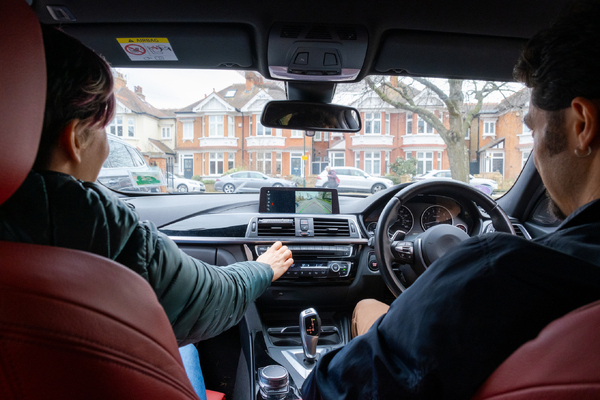Davos 2024: A new iteration of modern-age globalisation

One of the main themes of Davos 2023 was stemming the tide of fragmentation in the global economy – a topic that will be further discussed under the title Reimagining Globalisation in January Nearly half (48 per cent) of banks globally said they have lost clients because of slow or inefficient onboarding processes, a figure that falls slightly to 39 per cent for banks operating in the UK.
One year on, some of the trends have become more accentuated while new ones have also emerged.
The 2007-2008 financial crisis put an end to the most prosperous phase of modern-age globalisation, of “non-inflationary, consistent expansion” (NICE). What came after it was a more subdued but still expansive version of NICE.
The crises that the global economy has been through since the start of the Covid pandemic, however, have drastically shaken some of the foundations of globalisation that had been taken for granted. These include low inflation, the race-to-the bottom approach to outsourcing, and the stretching of supply chains by keeping a minimum level of inventories.
Some of these, such as extremely low labour costs in China, melted away gradually, while others, such as the collapse of supply chains and inflation, were as dramatic as the events themselves that brought them about.
China hasn’t only changed the equation with its increasing labour costs and steeply climbing GDP but also by how its status has changed. Think of the mockery that surrounded copycat Chinese cars in the 1990s that amalgamated the front of a Fiat with the back of a Volkswagen and compare that with reviews of Chinese car manufacturer BYD’s new electric SUV, the Seal.
Although there are many areas of the economy where the US is confidently in the lead, 2023 has seen China overtaking Western leaders-of-the-pack in several league tables. China is now the world’s biggest EV maker and the country with the largest capacity of offshore wind power, as well as hypersonic missiles, with two new weapons developed.
Is the emerging protectionism in the West an evil or a necessity?
Meanwhile, news coming from the EU economy recently tends to be grim. Most conspicuously, the German car industry is still struggling to recover from the blow dealt by the pandemic and snarled supply chains, with production still 10 per cent lower than in the first half of 2019. And the German government is still struggling to breathe new life into its once world-leading solar panel industry, which was brought to its knees by its Chinese counterpart’s subsidised prices in 2010. The result is that today, China holds 80 per cent of global solar manufacturing capacity.
Although Berlin announced plans this June to support companies that want to establish or expand solar capacity, players in the sector seem to find the US a more appealing environment for new projects thanks to the generous subsidies, incentives and loans that the Inflation Reduction Act of 2022 offers there to support domestic clean energy production.
Unfortunately, financial help for solar energy company Norwegian Crystals was too little too late, leading to its bankruptcy in August this year – a big blow to the resurgent European photovoltaic industry.
But the Norwegian company is not the only one to have got into financial trouble. Bankruptcies have been reported from the UK and Sweden too, as companies in the renewable energy sector are dogged by the unavailability of subsidies.
What is the likeliest scenario for the next phase of globalisation?
Current trends suggest that a complete decoupling between the US and China, as well as the world’s countries forming two opposing blocs in a Cold War II scenario, is unlikely in the immediate future. (The McKinsey Global Institute’s modelling suggests that 10 to 40 per cent of global GDP is dependent on world trade staying connected.)
It’s reassuring to remember that, although since 2016, the US and China reduced the flow of goods and services between each other, the two countries are still connected by larger combined trade, capital and information flows than any other two countries without a shared border.
Success stories in, for example, the green energy sector involve a high degree of international collaboration. Ocean Winds, a joint venture set up to build the Moray West offshore wind farm in Scotland, is owned by Lisbon-based EDP renewables and French multinational Engie, while Spanish-German Siemens Gamesa manufactured the first 108-metre-long wind turbine blades for the project at its factory in Hull. Bucking the decoupling trend, Ocean Winds has contracted China-based Dajin Heavy Industry for the supply of 48 XXL monopile foundations.
According to projections, the clean energy to fossil fuel ratio must improve to 4:1 from today’s 1:1 ratio, to curb climate change. Creating the manufacturing capacity to reach this goal has to be an international effort. But it’s not just energy transition that will require a global approach. Other topics discussed at Davos, from biodiversity and generative AI to sustainability, call for collaboration, global solutions and international standards. If these challenges are to be solved, a more equitable globalism, not isolation, is the answer.

Business Reporter Team
Most Viewed
Winston House, 3rd Floor, Units 306-309, 2-4 Dollis Park, London, N3 1HF
23-29 Hendon Lane, London, N3 1RT
020 8349 4363
© 2024, Lyonsdown Limited. Business Reporter® is a registered trademark of Lyonsdown Ltd. VAT registration number: 830519543





